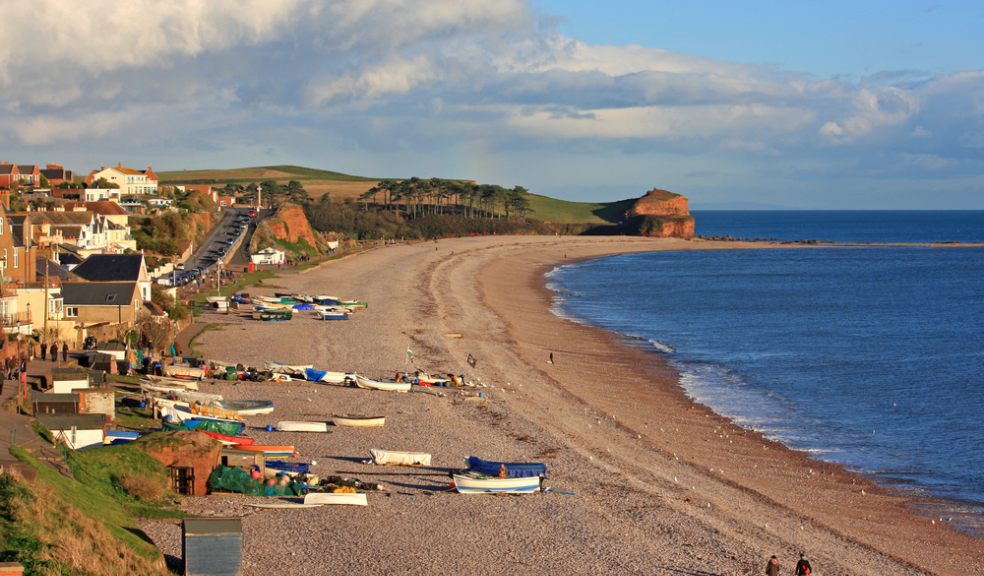
East Devon beaches cleaner than ever
East Devon’s glorious beaches have never been cleaner. But behind the scenes much hard work has been carried out between East Devon District Council and the Environment Agency to ensure that the new high standards set by the EU are both met and maintained.
As natural environments, beaches can be badly affected by weather, particularly storms, so the heavy rainfall that the South West is currently experiencing has an impact on bathing water quality, by washing polluted water into the rivers and drains that lead into coastal waters. It can then take days or even weeks for this surface water to be washed further out to sea.
The beach at Budleigh Salterton, for example, is served by a combined surface and sewer system. Surface water flows into the three water courses (River Otter, Kersbrook and Knowle Stream), which rise further inland and are fed by other streams, as well as outfall pipes and highway drains. In the event of heavy rainfall, such as the deluge experienced on 10 August, it was inevitable that Budleigh’s bathing water became contaminated by surface water, which poured into these local rivers and eventually the sea.
However, the good news is that this pollution is short term and typically returns to normal after one to three days. The EA makes daily pollution forecasts based on rainfall and will issue warnings if there is a risk of reduced water quality.
Councillor Tom Wright, ward member for Budleigh Salterton and Foreshore Chairman for Budleigh Salterton Town Council takes water quality issues very seriously and has been closely involved with the EA for a number of years.
“For the past two years the council and the EA have worked together to carry out a detailed investigation into all the water courses that lead into Budleigh’s beach. This research is continuing to identify the sources of contamination to the water and to rectify any problems. The work is already proving beneficial and Budleigh passed its annual water quality assessment in 2014.
“We certainly cannot rest on our laurels though. Because this is a rural area with more than 50 farms in the catchment, the run-off from agricultural land is significant and requires careful management. One immediate result, which we have achieved, is that a section of the River Otter has been fenced off to prevent cattle from entering the water, which is having a positive impact on the quality of bathing water.
“The Catchment Sensitive Farming Scheme, which is a project run by Natural England and other public sector partners, is also helping raise awareness of diffuse water pollution from agriculture among landowners, by providing advice on groundwater protection as well as manure and pesticide management.
“We have an ongoing duty to do all that we can to prevent contamination of our beautiful beaches, to ensure that they are clean and safe for use by residents and visitors. But it is important to acknowledge that they are susceptible to bad weather, which can and does have a temporary detrimental effect on water quality.”



















